|
||||||||
|
|
|
2017-03-10 ArtNo.45949
◆Review:The baptism of the Holy Spirit (Jesus' enlightenment)
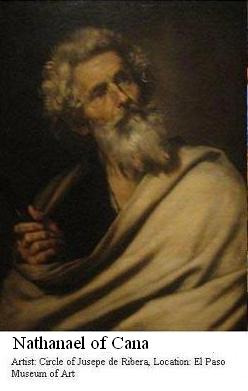 Jesus chose a man called Nathanael in addition to Peter, Andrew, John and Philip as his disciples immediately after he had made a debut to the religious society of Jerusalem with testimony of John the Baptist in Bethany. Jesus gives the highest evaluation to Nathanael, saying, "Here is a true Israelite, in whom there is nothing false." (John 1:47) ○The mystery of Nathanael's vocation Nathanael of Cana in Galilee is one of the 12 Apostles and is introduced as a friend of Philip. He reappears as "Nathanael of Cana" at the end of John's Gospel, as one of the disciples to whom Jesus appeared at the Sea of Galilee after the Resurrection. (John 21:2) 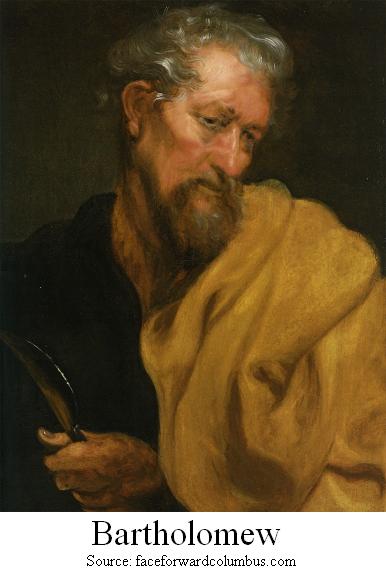 However, he is mentioned only in the Gospel of John, but not in the Synoptic Gospels, that is, the Gospels of Mark, Matthew, and Luke. According to the International Standard Bible Encyclopedia, from the 9th century onward, Nathanael has often been identified with Bartholomew the Apostle mentioned in the synoptic gospels, but this view has not been conclusively established. The writer of the Gospel of John, which was written last among the four Gospels, probably John, the son of Zebedee, who fulfilled his natural live and became the last remaining member of the Twelve Apostles, seems to have felt that the name of Nathanael should be told to future generations, regardless both were the same person or not, and to have added the name of Nathanael to the list of the Twelve Apostles instead of Bartholomew. ○The founder of a Samaritan religious sect? 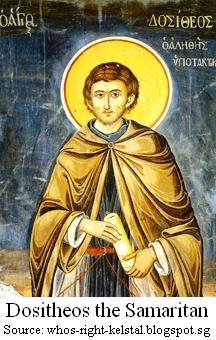 Dositheos, a founder of a Samaritan religious sect, who is occasionally also known as Nathanael, both meaning "gift of God," lived probably in the first century of the common era. According to Hegesippus (90?-180?), who is known to have translated "Wars of the Jews" of Josephus (37-100) from Greek into Latin, Dositheus lived later than Simon Magus, the person often referred as the founders of Gnosticism; other authors speak of him as the teacher of Simon, at the same time confounding him with Simon Magus, connecting his name with Helena. He is reputed to have known John the Baptist. Although Origenes Adamantius (182?-251), who have won the high honor of the greatest early Christian theologian, says that the Dositheans were never in a flourishing state and that in his time, they had almost entirely disappeared, scarcely thirty of them being left, yet the fact that the patriarch Eulogius of Alexandria (582?-603?) disputed successfully against the Samaritan followers of Dositheus, and wrote a work expressly against them (Photius, "Bibliotheca," cod. 230), shows that the Dositheans existed and even exercised a certain power in the sixth century. Origenes possibly refers to a Christian sect of the Dositheans, who in fact left no traces, while the Samaritan sect certainly continued to exist. In Egypt especially, the sect was probably numerous enough to induce the Christian patriarch of Alexandria to engage in polemics against it. 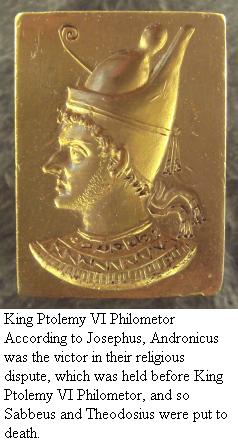 Regarding the origin of the Dositheans, the rabbinical sources also contain obscure references to Sabbaeeus and Theodosius, who were the representatives of the Samaritans in their religious dispute with the Jews, which was held before King Ptolemy VI Philometor, about the year 150 BCE, as the two founders respectively of the Samaritan sects of the Sabuaeans and Dositheans. According to Josephus, Andronicus ben Meshullam, who was the representative of the Jews in their religious dispute with the Samaritans, proved from the Scriptures the historic continuity of the Jewish high priests; and from the great respect which was accorded the Temple of Jerusalem even by the non-Jewish kings of Asia, he argued that the claim of the Samaritans that Mount Gerizim was the sacred place of worship for the Israelites was unjustified. He is said to have argued his case so successfully that the king ordered the execution of Sabbeus and Theodosius, the two champions of the Samaritans, this being the penalty agreed upon beforehand for the losing party. Abu al-Fath (1086–1153), an influential Persian historian of religions, says of the Samaritan Dositheans that they abolished the festivals instituted by the Mosaic law, as well as the astronomical tables, counting thirty days in every month, without variation. It reminds one of the Sadducees, and is a further proof that the Dositheans were their spiritual descendants. (Wiki in English)  Nathanael (Bartholomew) is also said to have written a Gospel. He went on a missionary tour to India and said to have been martyred in Armenia. According to Ninety-Three by Victor Hugo (l802-1885), Pope Gelasius declared the Gospel of Nathanael-Bartholomew apocryphal. They were so utterly engrossed in their pitiless destruction of the old book. ○Jesus and Samaria Jesus, who suddenly appeared alone on the banks of the Jordan River and was baptized by John the Baptist (Mark 1:9/ Mat 3:13), is said to have been in his mid thirties at that time (Luke 3:23) but seems to have not had any disciple and have not been doing missionary activities until then. There is no record regarding where Jesus had been or what he had been doing until then. However, from the description of these Gospels, Jesus appears to have appreciated Samaritans more than Jews and seems to have had a close relationship with Samaria. 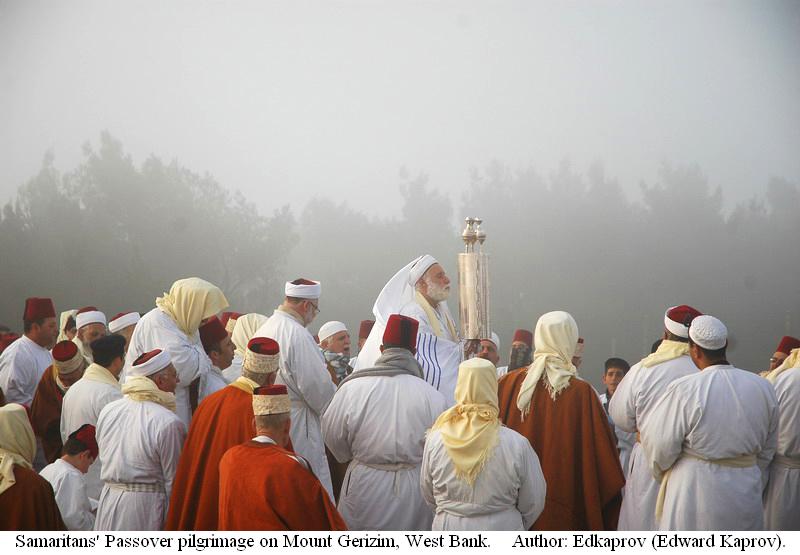 In the Gospel of Luke, when a teacher of the law asks Jesus, "Who is the neighbor preached by the Scripture?" Jesus answered, "Which do you think is the neighbor for a traveler among them, a Jewish priest and a Levite who abandoned the traveler who had been robbed and injured or a Samaritan who kindly helped and cared for him? " (Luke 10:25-37) In the Gospel of John, a Samaritan woman drawing water asks Jesus, "Which is the place where we must worship, the Mt. Gerizim or the temple of Jerusalem?" Jesus replies, "A time is coming when you will worship the Father neither on this mountain nor in Jerusalem. A time is coming and has now come when the true worshipers will worship the Father in spirit and truth, for they are the kind of worshipers the Father seeks. God is spirit, and his worshipers must worship in spirit and in truth." (John 4:20-24) ○The testimony of John the Baptist at Bethany 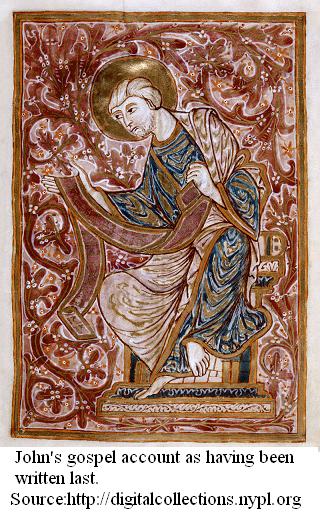 John the Baptist said to priests and Levites who had been sent by the Jews of Jerusalem at Bethany, "I baptize with water, but Among you stands one, who will baptize with the Holy Spirit, the thongs of whose sandals I am not worthy to untie." (John 1:26-27) A few days later, Jesus, who had attended a wedding at Cana in Galilee with his mother and some of the disciples of John the Baptist, such as Peter, Andrew and John, performed the first of his miraculous signs, He filled six stone jars, each holding from twenty to thirty gallons (from 80 to 120 liters) with water and turned the water into wine to feast the participants of the wedding. (John 2:11) The bridegroom of this wedding is said to have been Simon the Zealot, who is said to be Jesus' younger brother. Immediately after this, Jesus went up to Jerusalem and drove all merchants from the temple area.(John 2:13-17) From these descriptions of the Gospel of John, "the testimony of John the Baptist at Bethany," "the wedding at Cana," and "driving out the merchants from the temple," seem to have been carefully prepared as one set among various religious sects of Jerusalem, such as the Sadducees of the priest class, the Essenes and the Pharisees who embraced John the Baptist, the Nazirite led by James the Less and the Zealot in which Jesus' another brother, Simon, involved in order to let Jesus make a debut to the religious society of Jerusalem. ○A codex was excavated 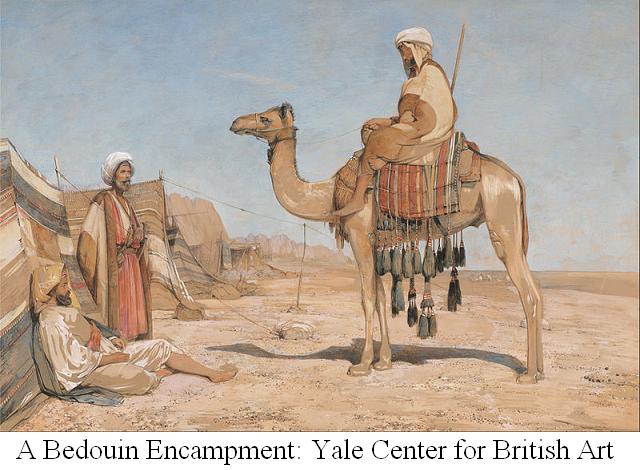 A Bedouin in search of treasures discovers a glass jar half buried in the earth of some out of the way place in the Middle East. He decided to take it to the Religious and Archeological Society of Jerusalem to try to sell it. After careful study and scientific examination, it is concluded that the writings and the portion of the scroll date back to the first century C.E. The Gospel According to Nathanael is the title of the scroll. People may be impressed by the striking similarity to the other gospels and yet the significant differences from them. (The Gospel According to Nathanael:Overview) ○Jesus' enlightenment ...Jesus travelled from one town and village to another, proclaiming the good news of heaven. The ten were with him and also a woman called Mary Magdelene who had been cured of seven evil spirits and other women such as Joanna, the wife of Cuza, the manager of Herod's household, and Susana. 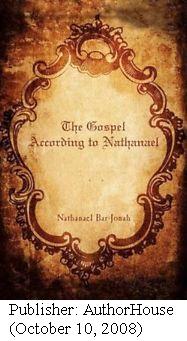 One early morning, Jesus had been sitting in deep concentration and contemplation for hours when finally he opened his eyes and knew that something drastically new had occurred in him. He had been locked up in prison, as it were, but had dug his way out, had found a way to freedom and awareness. He had no reservations. He had undergone a total liberation from ignorance and death, and attained the purity of immortality. He pledged to spread this new consciousness as his life's present mission. On his way back to the camp, he confronted Peter. Peter stared at his master and said, finally, "You look so different, Master. What has happened to you?" "What do you mean, Peter?" "You look like a shining sun or a newborne babe." "I am the light of the world. I am the awareness that proceeds all thought and emotions." During these days, Jesus increased his morning trips to the woods to be alone with the Father, praying his contemplative prayer. His disciples fianally seemed to have figured out that during these times, Jesus wanted to be alone, so they did not go after him or disturb him in any way. Jesus was able to spend longer periods of time in the morning alone in contemplative prayer. People were coming to see Jesus from miles around, and when he saw the time was right, he taught them parables. (The Gospel According to Nathanael:Free Preview) This passage is reminiscent of the Buddha's enlightenment under a lime tree. The writer, who calls himself Nathanael Bar-Jonah, seems to have viewed Jesus and his followers from the outside and have objectified, although it is not sure on the original Greek codex. <To be continued> 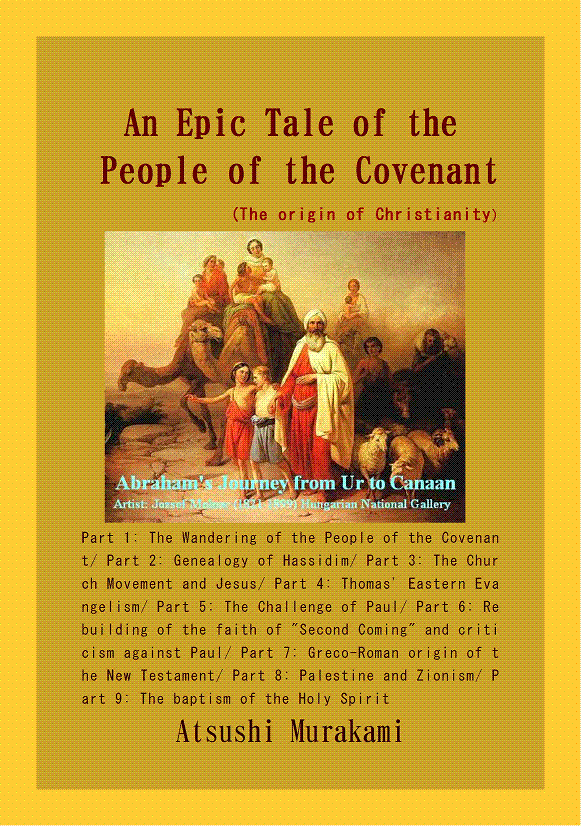 ○What is "Baptism with The Holy Spirit"? According to the dialectic of the Gospel of John, 【Thesis】"A man can possess eternal life through accepting testimony of the Son of man and being baptized by him." (John 5:24) 【Anti-thesis】But "The one who comes from the earth cannot accept the testimony by one from heaven."(John 3:32) How then can a man possess eternal life? 【Synthesis】"If you want to be baptized with the Holy Spirit, you can just go back to the word which was with God in the beginning (John 1:1) and certify that God is truthful. (John 3:33)" When he said, "You are Huichao," Zen Master Fayan thrusted vivid Self in Huichao in front of his eyes. Purchase here ○One world:The aim of SEAnews Your Comments / UnsubscribeSEAnewsFacebookSEAnewsGoogleSEAnews eBookstoreSEAnews eBookstore(GoogleJ)SEAnews world circulation |
|
[Your Comments / Unsubscribe]/[您的意见/退订]/[ご意見/配信停止]
Please do not directly reply to the e-mail address which is used for delivering the newsletter. 请别用递送新闻的邮件地址而直接回信。 メールをお届けした送信専用アドレスには返信しないで下さい。 |